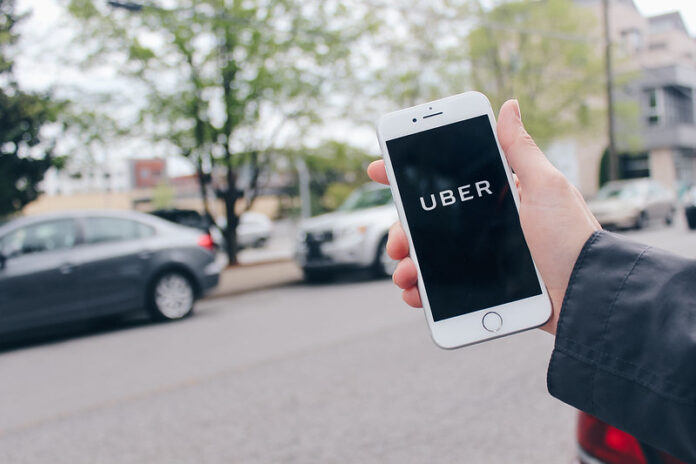Photo by Stock Catalog via Flickr Creative Commons
In just under a week, California voters will decide the future of transportation and delivery app workers. A third of those workers in the Bay Area are Asian, NBC News reports.
California’s Proposition 22 would exempt gig companies like Uber and Lyft from a new law (AB5) requiring them to classify transportation and delivery app drivers as employees, CalMatters reports. AB5, which was implemented in January, required many workers who were formerly classified as independent contractors to be classified as employees. The intention was to help those workers secure benefits like health care, overtime pay, paid sick leave, unemployment insurance and worker’s compensation.
Companies like Uber and Lyft have spent over $200 million on Proposition 22 in the hopes of continuing to classify their workers as independent contractors.
The measure will disproportionately affect non-white drivers in California. According to NBC News, 80 percent of San Francisco’s transportation and delivery app drivers are non-white Californians. Around a half of the drivers are immigrants and one-third are Asian.
Many Asian American drivers began working for Uber and Lyft to make ends meet. Saori Okawa, a 36-year-old Japanese immigrant, began working for Uber to put herself through community college. After graduating, she began driving full-time. Before the lockdown in March, she would often work 12-hour shifts.
Okawa told NBC News that she was making an average of $11.52 per hour — $4 less than the city’s minimum wage. She could barely afford to cover the gas and car rental costs. She developed back pains from driving for long hours.
Okawa says Prop. 22 would only make her working conditions worse, denying her access to benefits like overtime pay, disability coverage and minimum wage. According to CalMatters, benefits provided to gig drivers under Prop. 22 would depend on their “engaged time.”
Veena Dubal, a labor law professor at the University of California-Hastings who has studied the rise of the gig economy told NBC News that Prop. 22 creates working conditions that prevent upward mobility for workers who are primarily immigrants.
Dubal also noted that it will be especially hard for gig drivers to make a living without access to unemployment insurance or sick leave, especially during the pandemic.
Okawa told NBC News that Uber did a poor job of helping its drivers during the pandemic. At the height of the pandemic, Uber failed to provide drivers with protective gear, disinfectant wipes and a partition to separate drivers from passengers. She said it took two months for Uber to email its drivers about safety supplies.
Prop. 22, like a few other California ballot measures, is in a tight race. A poll conducted by UC Berekley’s Department of Goverment Studies found that 46 percent of voters support Prop. 22 and 42 percent oppose it, while 12 percent remain undecided, SF Gate reports.
AsAmNews has Asian America in its heart. We’re an all-volunteer effort of dedicated staff and interns. Check out our new Instagram account. Go to our Twitter feed and Facebook page for more content. Please consider interning, joining our staff, or submitting a story.



